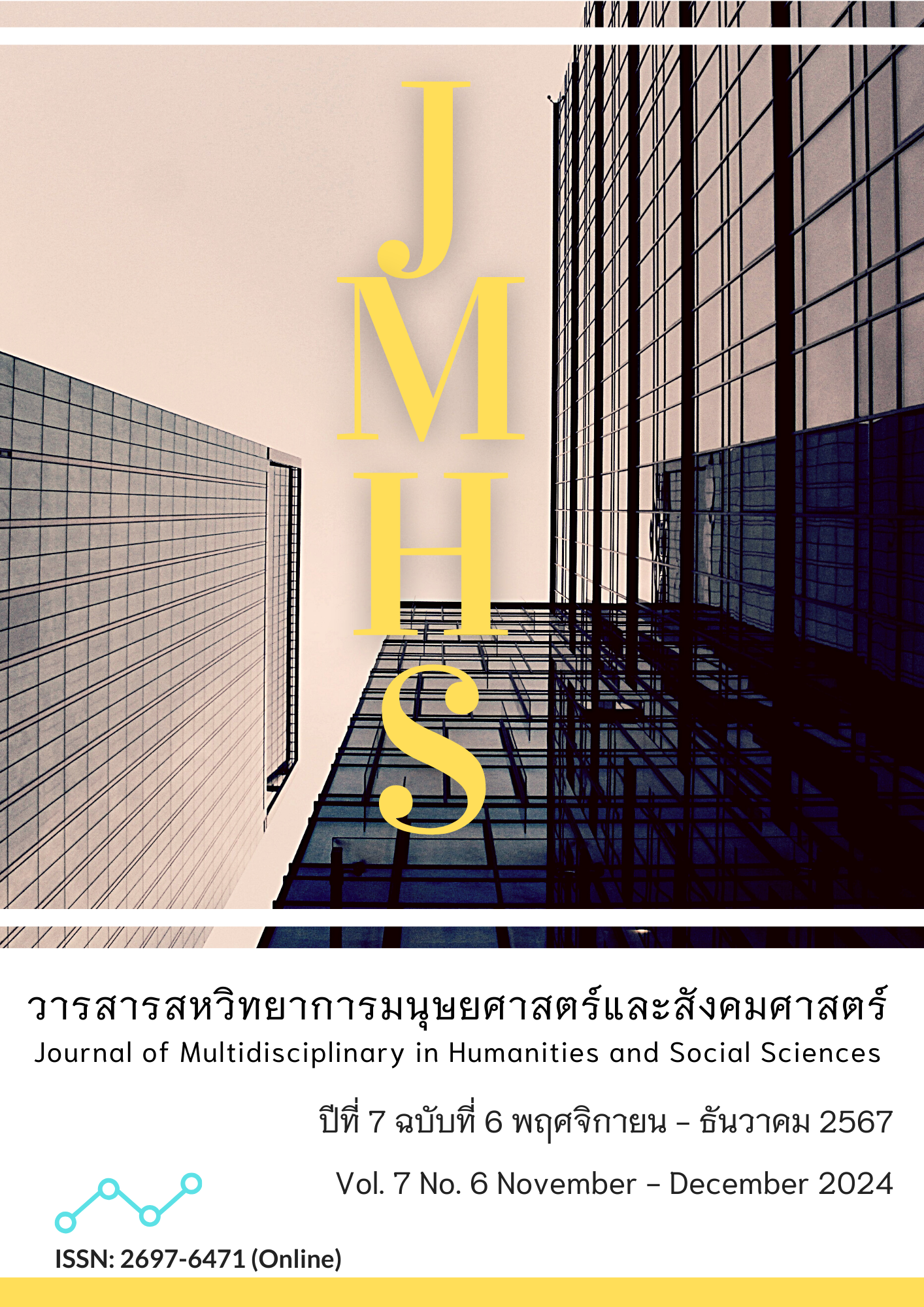The Design of the Thai Musical Culture and Performing Arts Course for Chinese Universities from the Perspective of Multiculturalism
Main Article Content
Abstract
Thai musical culture and performing arts are important resources for multicultural education. However, based on the current situation of Thai music culture and performing arts in Chinese universities, students lack understanding and learning about this valuable art and cultural resource. Therefore, this dissertation proposes a comprehensive framework for integrating Thai musical culture and performing arts courses into Chinese university curricula, including an introduction to Thai music and performing arts, and emphasizes the value of Thai music and performing arts and their positive impact on cultural exchange and cross-cultural music education from the aspects of philosophy, anthropology, sociology, and musicology. Finally, the course concept, objectives, teaching arrangement, content, resources, methods, evaluation strategies, and teaching case examples are designed to strengthen multicultural music education in Chinese universities.
Article Details

This work is licensed under a Creative Commons Attribution-NonCommercial-NoDerivatives 4.0 International License.
Views and opinions appearing in the Journal it is the responsibility of the author of the article, and does not constitute the view and responsibility of the editorial team.
References
Beeman, W. O. (1993). The anthropology of theater and spectacle. Annual review of Anthropology, 22(1), 369-393.
Cai, Z. H. (2013). Analysis of music appreciation teaching practice based on multiculturalism. Northern Music, (12), 114.
Chen, P. G. (2017). Multicultural Concept and teaching Research of the Basic Course of Music for Senior Teachers(Doctoral dissertation). Nanjing University of the Arts.
Cheng, J. (2018). Harmony and Balance in Confucian Philosophy. Journal of Chinese Philosophy, 45(1), 69-83.
Dai, B. X. (2019). On the role of multicultural music teaching in higher vocational music education. Northern Music, 39(16), 206+209.
Eller, J. D. (1999). From culture to ethnicity to conflict: An anthropological perspective on international ethnic conflict. University of Michigan.
Elliott, D. J. (1990). Music as culture: Toward a multicultural concept of arts education. Journal of aesthetic education, 24(1), 147-166.
Garzoli, J., & Hin-on, T. (2023). Thai musicology in context: epistemic disparities in Thai and western ways of knowing Thai music. Ethnomusicology Forum, 32(2), 224-250.
Guan, J. H. (2011). Music education from the perspective of multicultural education. Nanjing Normal University Press.
Habermas, J. (1987). The Theory of Communicative Action: Reason and the Rationalization of Society. Philosophy & Social Criticism, 13(2), 147-168.
Kim, Y. J. (2014). The Concept of Balance in Zen Buddhism. Buddhist-Christian Studies, 34, 89-103.
Liu, M. H. (2021). Research on the Development and Practice of ASEAN Ethnic Music Course in Guangxi Universities: A Case Study of Northeast Thai Folk Music. Journal of Guangxi Institute of Education, (6), 127-130.
Martin, P. J. (1995). Sounds and society: Themes in the sociology of music. Manchester University.
Maryprasith, P. (2000). The effects of globalization on the status of music in Thai society(Doctoral Dissertation). Institute of Education, University of London.
Nantiporn, C. (2002). The concept of impermanence in Thai Traditional Music. Journal of Buddhist Studies, 28(2), 115-129.
Olsen, D. A. (2004). Multicultural music education, cultural sensitivity, and the ethnographies truth: A response to Cornelius. College Music Society, 35, 33-34.
Sowat, S. (2018). Thai classical music for the Phrommas Episode in Khon Performance(Doctoral Dissertation). University of York.
Swangviboonpong, D. (2003). Thai classical singing: Its history, musical characteristics and transmission. Ashgate.
Veblen, K. (2000). Review Essay: Multicultural Music Education. 175-177.
Wan, C. (2019). Research on the development and practice of maker course in primary(Doctoral Dissertation). Northeast Normal University.
Yang, X. Y. (2020). Research on the development of local curricula for intangible cultural heritage(Doctoral Dissertation). Hunan Normal University.
Yu, C. (2016). The Notion of Balance in Taoist Philosophy. Asian Philosophy, 26(4), 303-317.
Zhu, Y. J. (2009). Construction of the world folk music course based on the perspective of practical philosophy. Journal of Nanjing University of the Arts (Music and Performance Edition), (4), 136-140.


